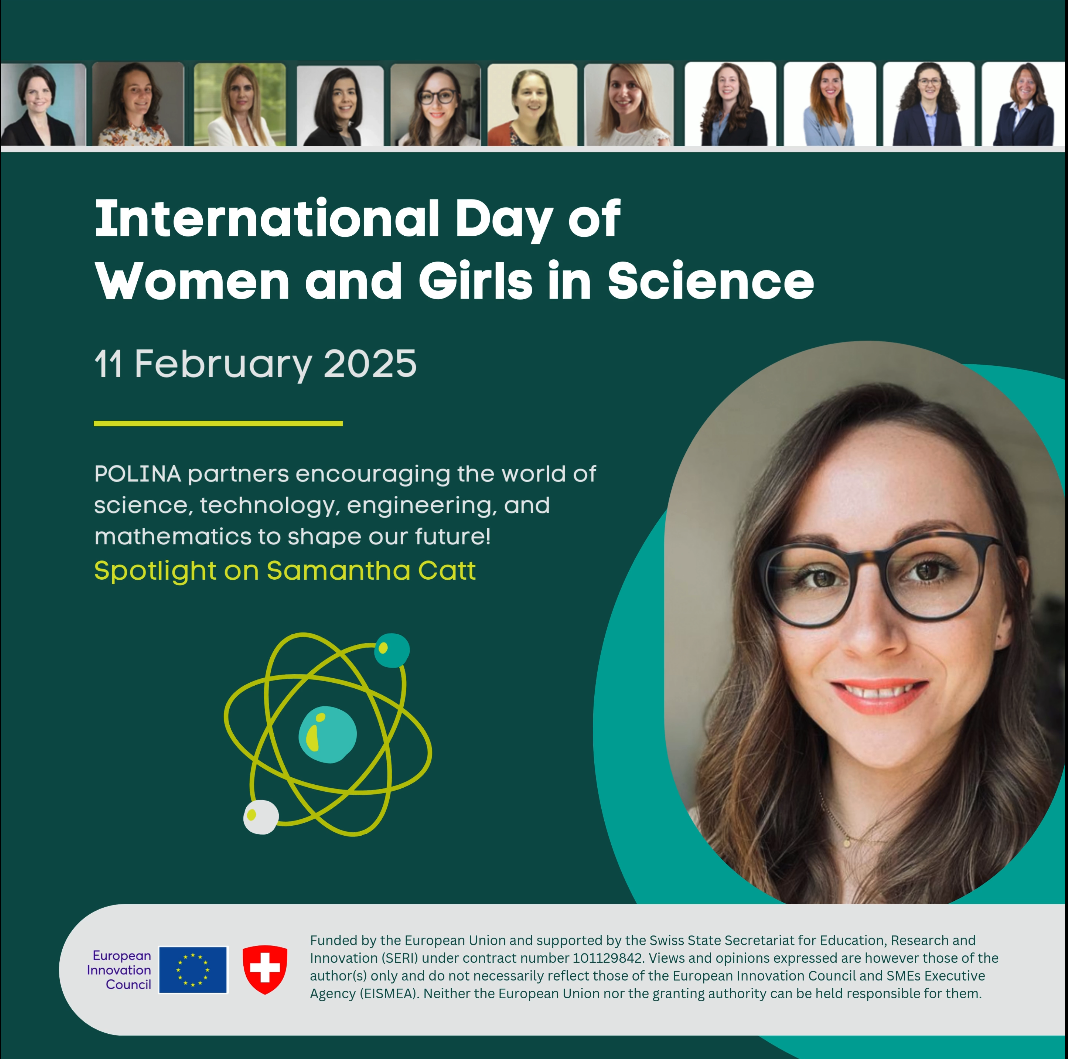In celebration of the International Day of Women and Girls in Science, we are delighted to feature an interview with Samantha Catt, a Postdoc researcher contributing significantly to the POLINA project. Samantha shared inspiring insights on the essential role of women in driving scientific innovation and progress, while encouraging young people to explore careers in STEM fields.
Samantha is part of the group of Prof. Blasco at the University of Heidelberg, and they are experienced in the design and synthesis of new polymer-based functional materials with applications in 3D/4D micro- and nano-printing. Prof. Blasco’s research includes the development of new functional inks that enable 3D printed materials with e.g. responsivity (e.g. light or temperature), controlled erasability, molecular control and nano-ordered structure. Within POLINA , they are working on the establishments of 3D photolithographic methodologies using novel light-sensitive poly(amino acid) materials.
The POLINA consortium integrates Science, Technology, and Innovation with a strong focus on supporting the Sustainable Development Goals (SDGs)—particularly SDG 3 (ensuring well-being for all at all ages) and SDG 9 (advancing industry, innovation, and infrastructure). Through cutting-edge research, POLINA partners are developing innovative materials and utilising modern 3D printing techniques to create devices that enhance human tissue compatibility and advance research tools. These breakthroughs aim to revolutionise medical device development, paving the way for wider adoption of innovative technologies to improve patient health and overall well-being.
Here you can find some takeaways from Samantha’s interview—an inspiration for the younger generation to embark on careers in STEM and scientific research!

